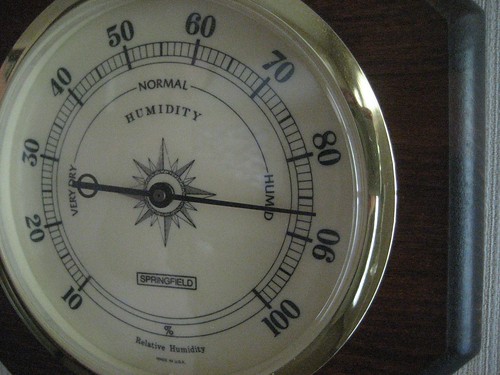That annoying saying, “it’s not the heat, it’s the humidity” is true. The heat wave we’re currently experiencing in Arlington is a double-whammy with high heat and high humidity (humidity was over 90% Saturday morning around 6 am.)
What to do?
To remove humidity from the house there is only one energy efficient alternative to an air conditioner or dehumidifier, but there are some important things you can do to prevent your home from becoming more humid.
The most efficient way to reduce humidity is to open a window, as long as it is dryer outside than inside. Even during heat waves (in MA) the overnight temperatures will usually drop, but humidity goes up. Environmentally, it’s a better deal to open your windows for the cool air and turn the AC off. Your air conditioner or dehumidifier are the only choices to reduce humidity in really sticky weather, especially during the heat of the day.
How to keep your home from getting more humid.
- Run your exhaust fans. When you shower or cook with gas, you release water molecules into the air -the last thing you want to do in a heat wave. (It also adds various unhealthy gases.) Turn on the exhaust fan while showering/cooking and make sure it stays on for several minutes after you’re done. Make sure your fan exhausts outside rather than into your attic, which creates a mold issue. If you don’t have an exhaust fan get one soon, your home will thank you.
- If it is still hot and humid in the morning, then contrary to what I said in a previous post, keep those windows closed. Most online weather sites will tell you the humidity outside.
- Buy a hygrometer. Hygrometers (commonly, but incorrectly, referred to as hydrometers) measure the humidity in your home. Unfortunately the inexpensive models seem to be of poor quality. I’ve found them to be off by as much as 10% when testing them (testing/calibrating requires only salt and water, Google: calibrate hygrometer). You can buy decent digital models for around $20.
- Dehumidify. Depending on which “expert” you listen to your indoor humidity should be between 30-60%. This keeps your home more comfortable and prevents mold from growing. Dehumidifiers are costly to run but less expensive than mold damage or health issues. Unfortunately dehumidifiers produce heat, so during heat waves they’re best left in the basement.
- Air conditioners don’t just cool the air, they take moisture out. Use them wisely, set them at high temperatures (75+), and try to use all the energy saving methods listed earlier first.
-Jeremy

